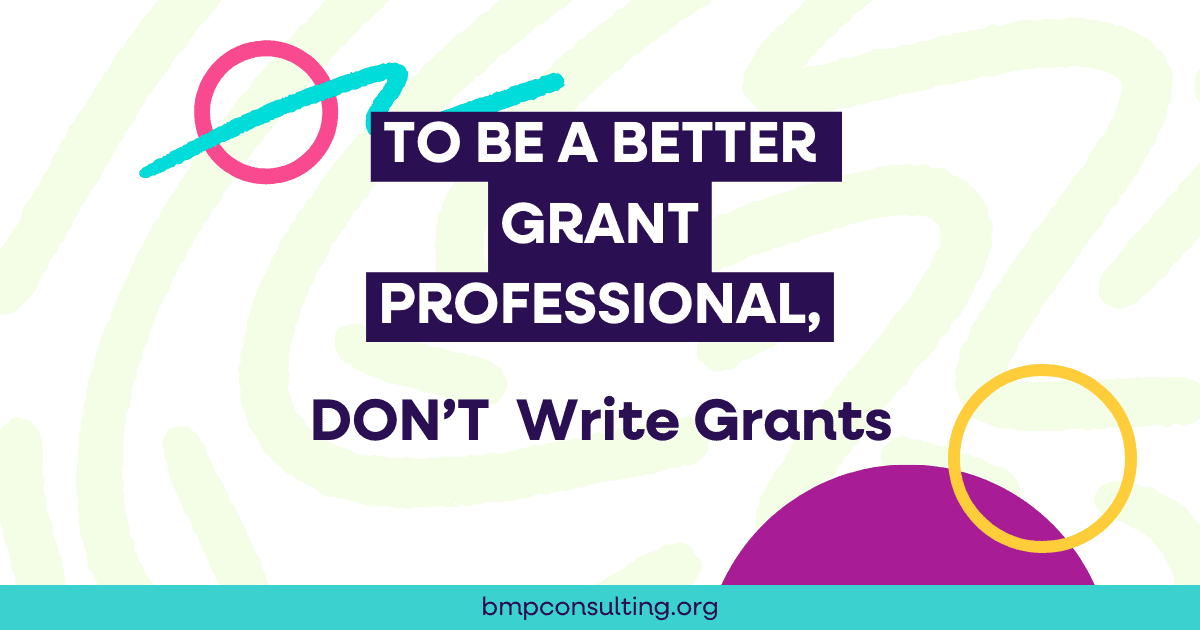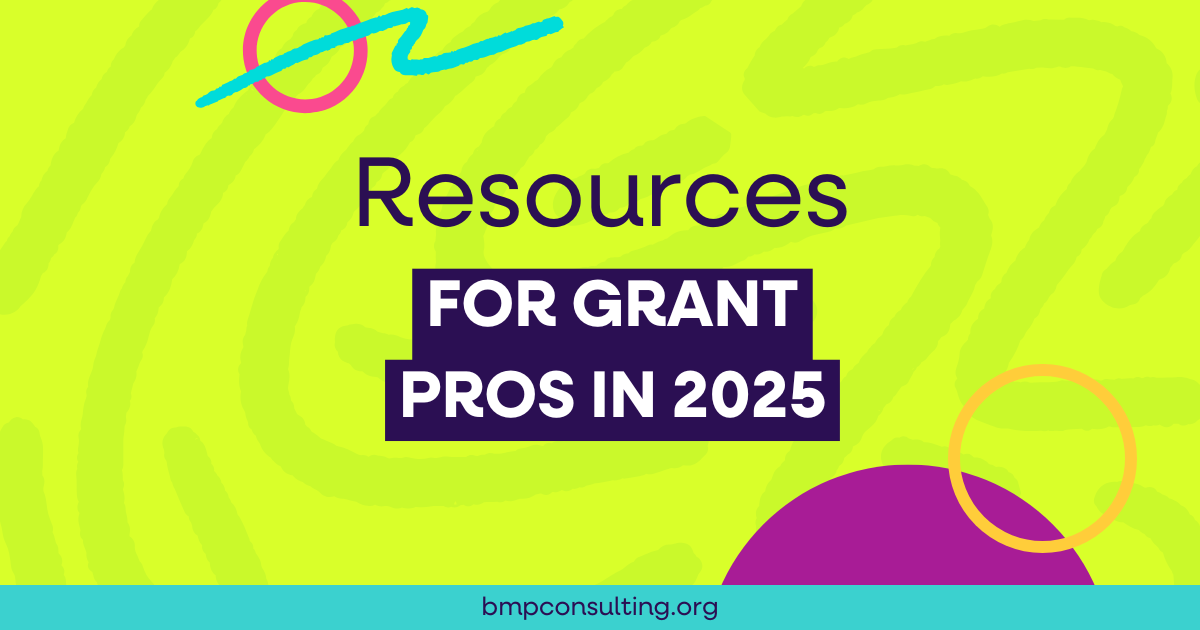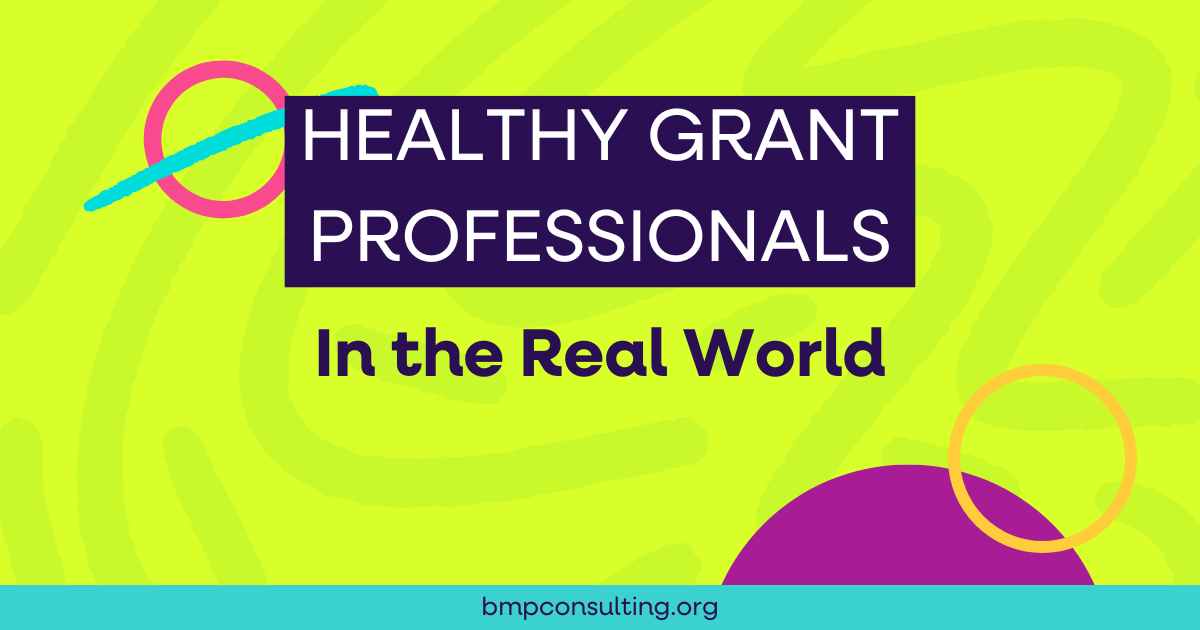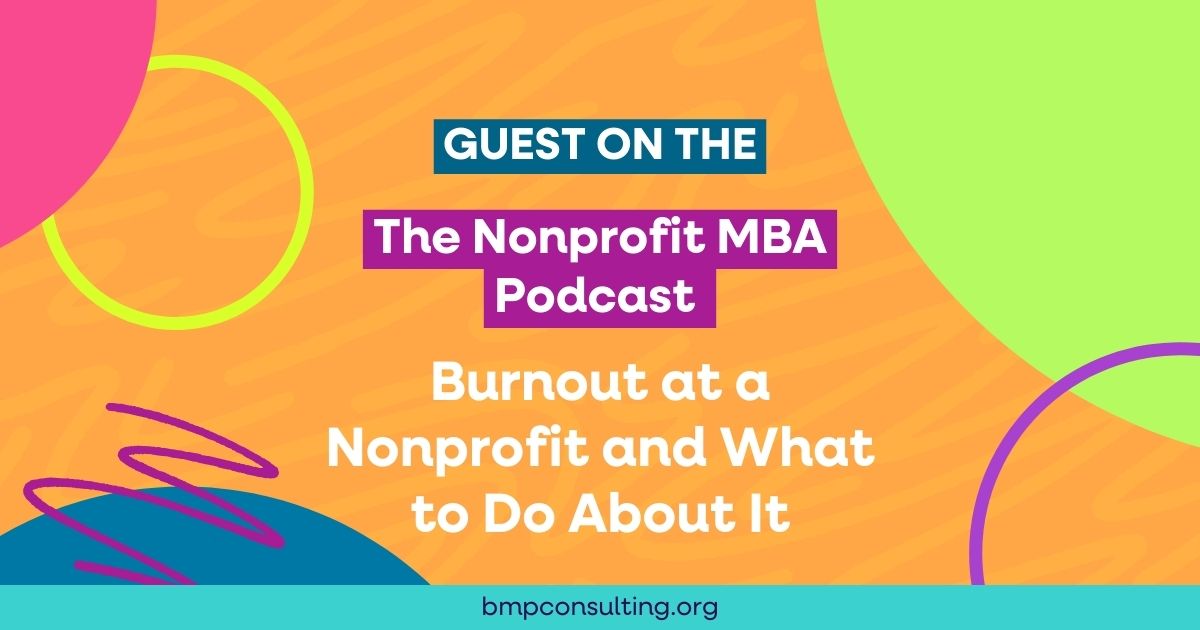Made you look, right? Of COURSE, good writing forms the backbone of winning grant proposals. Grant applications demand a prescriptive style and format of writing designed for ease of review, not for literary merit. Incorporating the funder’s language, rigid formats for outcomes, and following the specific order of requested information are crucial parts of creating winning proposals. But over time that style of writing can become formulaic and stale, leaving grant professionals feeling uninspired and grant reviewers bored.
So how can a busy grant pro sharpen those writing chops to craft concise, compelling proposals that can wow reviewers, win the grants, and do more good in the community?
Reading and writing in other forms helps. Think of it as cross-training for grant writing, only without gyms and sweat. Wearing yoga pants while doing so is strictly up to you; no judgment here.
- Re-reading: Reading continues to be one of my greatest pleasures, but re-reading like a writer focuses my own skills. After I know how a book ends, I’m ready to for a deeper dive into the specific details, actions, and character flaws I found so compelling the first time through. If free time is an issue for you, Young Adult (YA) fiction is typically shorter and packed with fast-paced plots, riveting action, and crisp dialogue. Check out contemporary YA books like The Hate U Give by Angie Thomas. She weaves issues of class, racism, code-switching, and much more into a truly compelling story. A closer examination of how she does this could help you insert telling details or incorporate storytelling techniques into your own program descriptions she does it could help you. Her new book, On the Come Up, came out on February 5. In Tayari Jones’ An American Marriage, newlyweds whose world crashed and burned through false imprisonment place all-too-human faces on the issue of mass incarceration. Her sparing use of details brings this issue to life in a way that reams of data often fail to do.
- Write other things: Writing guest posts and articles for other grant pros or the Grant Professional Association’s weekly newsletter helps stretch your descriptive skills and ability to write under tight word counts in different ways than standard proposals. They can also be great ways to network and further your professional development. I’m forever grateful that Danny Blitch invited me to co-author Prepare for the GPC Exam: Earn Your Grant Professional Certified Credential. Collaborating with three other writers and embracing the conversational style of Charity Channel’s In the Trenches sharpened my overall writing skills. Like any skills, practice is key to improvement. In Julia Cameron’s The Artist’s Way, she advises the freestyle writing of three “morning pages” as a way to hone creative skills. This daily exercise serves as a warm-up for more exacting writing and as a brain dump to clear my head for the day to come.
What are some of your favorite “re-reads” and what have they taught you about writing? Do you keep a journal or practice some other daily writing? I’d love to read all about it in the comments below.



